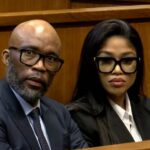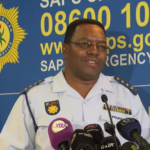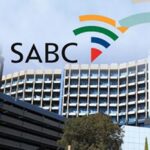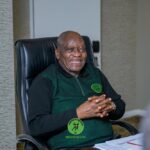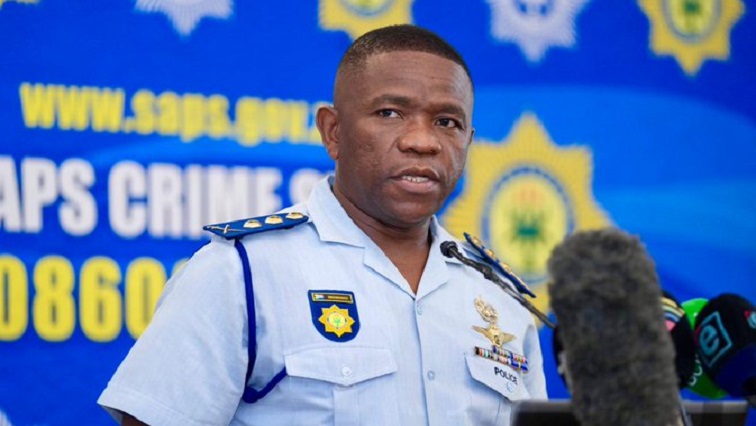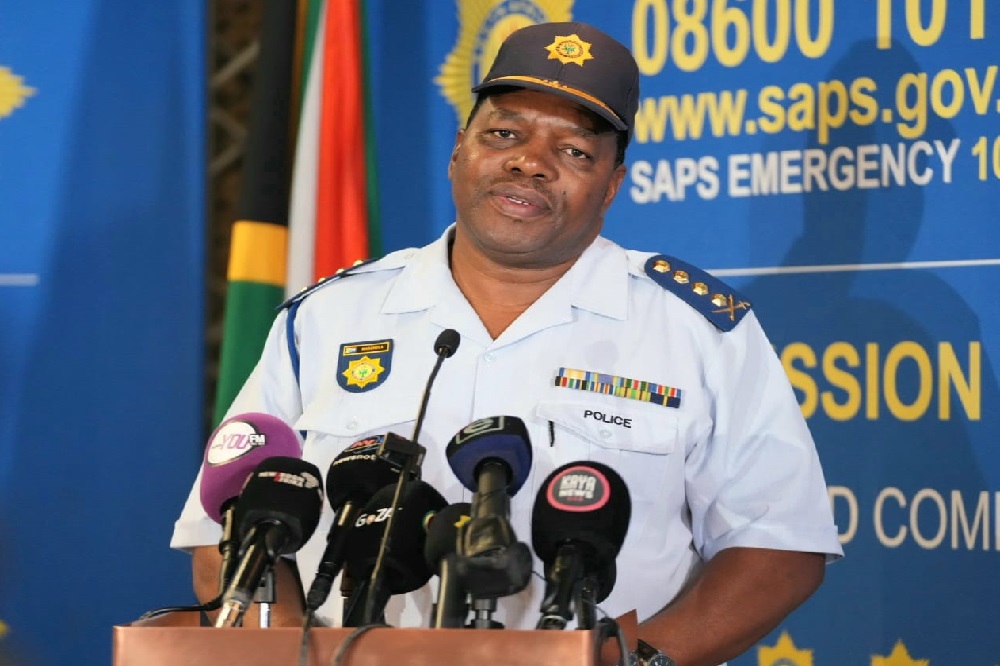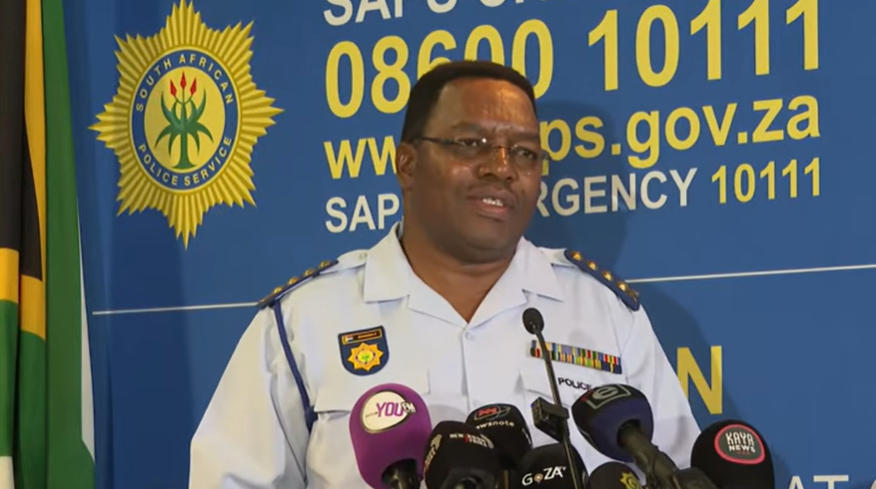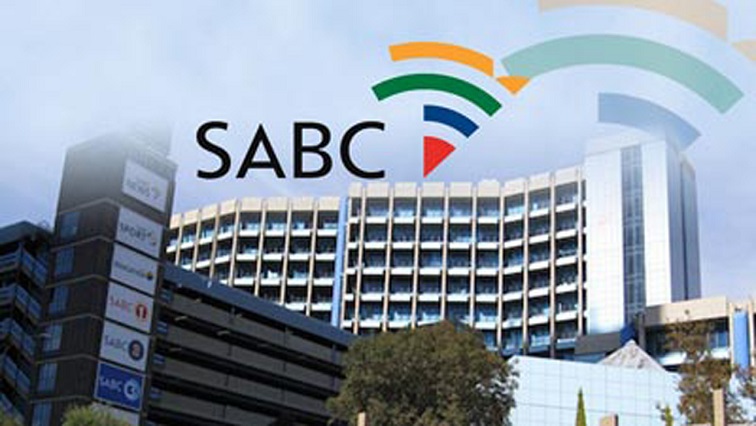-
KwaZulu-Natal Police Commissioner Nhlanhla Mkhwanazi.
Two of South Africa’s three arms of state, the Executive and the Legislature, are on a mission to get to the bottom of the allegations made by KZN Police Commissioner, Lt-General Nhlanhla Mkhwanazi, of corruption and political interference within the criminal justice system.
President Cyril Ramaphosa appointed a judicial commission led by Justice Mbuyiseli Madlanga. Meanwhile, Parliament appointed its own ad hoc committee to investigate the claims of criminal capture by drug syndicates, of powerful politicians, leading law enforcement officials and members of the judiciary.
Lieutenant General Nhlanhla Mkhwanzi‘s message to the Ad-hoc Committee, that due to his commitments at the Mandlanga Commission, he would not avail himself before September 24, raised the ire of a number of committee members, with some emphasising they will not play a secondary role to that of the Commission.
Ad Hoc Committee over Mkhwanazi allegations: Sandile Swana weighs in
Economic Freedom Fighters ad-hoc committee member Leigh-Anne Mathys says, “We cannot play second fiddle to the Commission of Enquiry, even the suggestion that we must have our meetings in Juba, we shut that down in our very first meeting. If anything, let that commission come to Cape Town. Already, we are making ourselves appear as though we are not a serious Ad-hoc Committee and the commission of enquiry is taking precedence over this. Even our acceptance of affidavits, etc., from the commission of enquiry is already a problem because we are already saying, as members of parliament and this ad hoc committee that is supposed to be giving oversight to government and to the executive, we are not serious. Whenever there’s time, you can come and appear before us.”
uMkhonto weSizwe (MK) Party ad-hoc committee member, Sibonelo Nomvalo says, “Well, yes. I think we need to stamp our authority. The ad-hoc committee was established by parliament, not by the Executive. Therefore, our operations can never be dictated by the programme of the Commission of Enquiry.”
While the simultaneous running of the Madlanga Commission and the Ad-hoc Committee appears to have created an element of competition between the two, with the availability of Mkhwanzi being the focus currently, in truth, the mandates of the two institutions differ.
The former is tasked with providing recommendations to the President, while the latter seeks to fulfil its oversight role of holding members of the Executive accountable.
Commenting on the arrangement, the leader of Rise Mzansi and Chairperson of the Standing Committee on Public Accounts (Scopa) says it is perfectly acceptable.
Scopa Chairperson Songezo Zibi says, “The two must happen together; there is a separation of powers in South Africa’s Parliament, it must do its work, and the Judicial Commission of Enquiry must do its work. There are people who believe the Commission of Enquiry is not necessary. You cannot have the police investigating themselves. I understand South Africans are tired of commissions. I am tired of commissions, but if you are going to have an investigation, it must be credible. Otherwise, you are just wasting your time.”
Although the Commission and the Committee have some overlapping terms of reference, including the power to summon witnesses and compel the production of documents, the Madlanga Commission has a broader scope.
Politicians in parliament involved in criminal syndicates: Nhlanhla Mkhwanazi
Amongst other things, it has the task of probing a total of eight government institutions, it is empowered to perform search-and-seizure operations, it may deviate from the Commission’s Act to hold hearings in camera if necessary and may refer matters for immediate criminal investigation.
In seeking to examine the differences in the way they will likely operate, the key issue of access to classified information, critical to many of the issues under investigation, will be illustrative.
Ad-hoc committee member Khusela Sangoni Diko says, “We would need to engage with other state organs, whether it is the SAPS, whether it is any other intelligence service, we believe can make a decision on whether to reclassify the information for us to engage with. At this point, we simply do not have the authority to do so, and we would not want to undermine or subvert the law by seeking to handle classified information in this committee.”
According to MP Diane Kohler-Barnard of the DA, the Ad-hoc Committee may have to rely on a report prepared by the Joint Standing Committee on Intelligence, whose members are the only ones with top security clearance.
“Already, the JSCI has gone through their process of interviewing various participants in this matter and has put together a report which has gone to the Speaker. Whether that report will now be redacted and declassified is up to the powers that be, but it is not a case of hiding anything; it’s a case of protecting matters that should be protected in this country and kept away from certain individuals who would possibly use it against the country.”
In contrast, the Madlanga Commission’s Chief Evidence leader is confident of the backing of a powerful ally. Adv Matthew Chaskalson says, “We are required to have classified information declassified, we do not have the power to do it ourselves but thus far we have had no difficulty from the relevant authorities in getting declassification of classified information that we wanted declassified and made available to us, but if we have difficulty in the future we will take that up, we are appointed to advise the President, who is the head of the Executive, but we can’t advise the President because we are not given access to information that is necessary for the purpose we will take up with the president.”
With ongoing commentary on how the work of the two institutions will unfold, Political Analyst William Gumede suggests that, rather than setting itself up against the Commission, the Ad-hoc Committee can perform two important functions.
“The Zondo Commission was very scathing of Parliament on Parliament’s role in relation to commissions. The parliamentarians often do not follow up. Maybe I would say two things that Parliament needs to do: one, wait until this inquiry is done, then do a follow-up. If they want to do an enquiry now, they should rather do an in-house enquiry, looking at how they strengthen their own role in dealing with the commissions of enquiry, with the outcomes of the commissions of enquiry.”
However, political analyst Sandile Swana has a different view: “Many of these issues can be handled by the SIU, some by the ad hoc committee, some by the police, and so on. We are not a new republic; we are very experienced in dealing with scandals, misdemeanours, and irregularities, and we have the mechanisms to do so. So, this duplicative effort is typical of our president. Rather than strengthening the existing systems, he sets up parallel structures.”
The Madlanga Commission is scheduled to commence public hearings on September 17 with the expectation that it will submit an interim report within three months and a final report within six months of its establishment, or within any extensions granted by the President.
In contrast, the commencement date of the Ad-hoc Committee still lies in the balance with suggestions of September 16 or 22. Its timeframe for completion is set for October 31.


